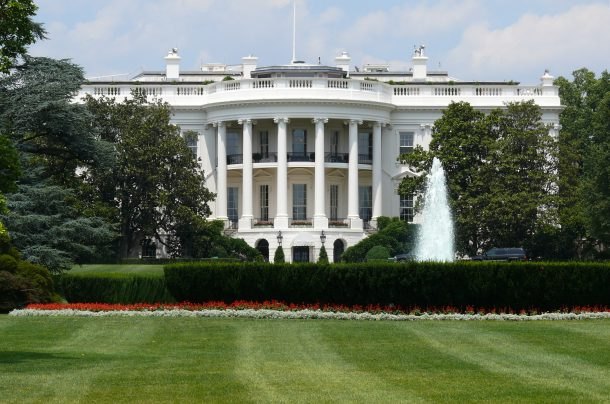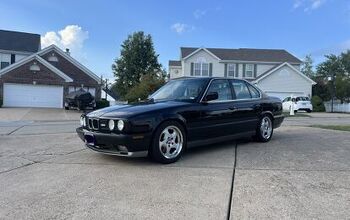Industry CEOs Head Back to White House Amid Growing Pressure Over Travel Ban

President Donald Trump is having a pow-wow with General Motors chief executive Mary Barra, Tesla CEO Elon Musk and a slew of other top U.S. executives today. The business community finds itself increasingly divided over how to respond to certain policies, especially after Uber CEO Travis Kalanick quit the president’s advisory panel over an executive order that temporarily ceased travel to the United States from seven predominantly Muslim countries.
Pressure from activists has forced numerous companies to take a public stance on the issue. Elon Musk in particular has begun to face harsh criticism for condemning the ban but continuing to work with the White House on business issues.
“Advisory councils simply provide advice and attending does not mean that I agree with actions by the Administration,” Musk wrote in response over Twitter on Thursday evening. “I understand the perspective of those who object to my attending this meeting,” he said, adding, “But I believe at this time that engaging on critical issues will on balance serve the greater good.”
Ford CEO Mark Fields has said his company does not support the travel ban either, due largely to its diverse workforce and company values, but claimed he has not lost faith in the President as a business leader. Fields is not believed to be present for Friday’s meeting.
Other advisory board members, including Barra, have not weighed in on the subject despite mounting public pressure to do so. Even some investors are starting to push leaders to position themselves strategically on the matter. “I certainly don’t think investors want people who run corporate America to be afraid of making smart business decisions,” Art Hogan, chief market strategist at Wunderlich Securities, said in an interview with Reuters on Thursday.
When he abandoned the panel, Uber’s Kalanick released a statement saying, “Joining the group was not meant to be an endorsement of the president.”
Being slightly more diplomatic, Musk issued a tweet on Thursday stating, “In tomorrow’s meeting, I and others will express our objections to the recent executive order on immigration and offer suggestions for changes to the policy.”
After some business executives dropped out of Trump’s business luncheons, Trump reached out to other companies — most recently Harley-Davidson.
“A lot of countries are taking advantage of us,” Trump said during a press briefing with the H-D executives and union members on Thursday. “Thank you Harley-Davidson for building things in America.”
While Harley-Davidson has numerous foreign parts suppliers and factories producing completed motorcycles in India, all U.S. and Canadian-sold motorcycles are assembled within the United States.
[Image: Ad Meskens/ Wikimedia Commons ( CC BY-SA 3.0)]

A staunch consumer advocate tracking industry trends and regulation. Before joining TTAC, Matt spent a decade working for marketing and research firms based in NYC. Clients included several of the world’s largest automakers, global tire brands, and aftermarket part suppliers. Dissatisfied with the corporate world and resentful of having to wear suits everyday, he pivoted to writing about cars. Since then, that man has become an ardent supporter of the right-to-repair movement, been interviewed on the auto industry by national radio broadcasts, driven more rental cars than anyone ever should, participated in amateur rallying events, and received the requisite minimum training as sanctioned by the SCCA. Handy with a wrench, Matt grew up surrounded by Detroit auto workers and managed to get a pizza delivery job before he was legally eligible. He later found himself driving box trucks through Manhattan, guaranteeing future sympathy for actual truckers. He continues to conduct research pertaining to the automotive sector as an independent contractor and has since moved back to his native Michigan, closer to where the cars are born. A contrarian, Matt claims to prefer understeer — stating that front and all-wheel drive vehicles cater best to his driving style.
More by Matt Posky
Latest Car Reviews
Read moreLatest Product Reviews
Read moreRecent Comments
- 1995 SC If the necessary number of employees vote to unionize then yes, they should be unionized. That's how it works.
- Sobhuza Trooper That Dave Thomas fella sounds like the kind of twit who is oh-so-quick to tell us how easy and fun the bus is for any and all of your personal transportation needs. The time to get to and from the bus stop is never a concern. The time waiting for the bus is never a concern. The time waiting for a connection (if there is one) is never a concern. The weather is never a concern. Whatever you might be carrying or intend to purchase is never a concern. Nope, Boo Cars! Yeah Buses! Buses rule!Needless to say, these twits don't actual take the damn bus.
- MaintenanceCosts Nobody here seems to acknowledge that there are multiple use cases for cars.Some people spend all their time driving all over the country and need every mile and minute of time savings. ICE cars are better for them right now.Some people only drive locally and fly when they travel. For them, there's probably a range number that works, and they don't really need more. For the uses for which we use our EV, that would be around 150 miles. The other thing about a low range requirement is it can make 120V charging viable. If you don't drive more than an average of about 40 miles/day, you can probably get enough electrons through a wall outlet. We spent over two years charging our Bolt only through 120V, while our house was getting rebuilt, and never had an issue.Those are extremes. There are all sorts of use cases in between, which probably represent the majority of drivers. For some users, what's needed is more range. But I think for most users, what's needed is better charging. Retrofit apartment garages like Tim's with 240V outlets at every spot. Install more L3 chargers in supermarket parking lots and alongside gas stations. Make chargers that work like Tesla Superchargers as ubiquitous as gas stations, and EV charging will not be an issue for most users.
- MaintenanceCosts I don't have an opinion on whether any one plant unionizing is the right answer, but the employees sure need to have the right to organize. Unions or the credible threat of unionization are the only thing, history has proven, that can keep employers honest. Without it, we've seen over and over, the employers have complete power over the workers and feel free to exploit the workers however they see fit. (And don't tell me "oh, the workers can just leave" - in an oligopolistic industry, working conditions quickly converge, and there's not another employer right around the corner.)
- Kjhkjlhkjhkljh kljhjkhjklhkjh [h3]Wake me up when it is a 1989 635Csi with a M88/3[/h3]































Comments
Join the conversation
Industry CEOs don't really care one bit about this for their business interests, it's just most of them have to pretend to (so they won't be called a racist) or like to dabble in politics themselves and use their position as activists. General Motors bottom line is not being effected by refugee halts, it's absolutely silly. Most of these countries that were issued a travel ban were actively being bombed by the US military under the Obama Administration. Where was the freakout then?
I didn't like Obama's use of EOs when he was president and I don't like Trump's use of EOs now. I didn't like the Republicans refusal to vote on Obama's court nomination and I don't like the Democrats vow that they will do the same to Gorsuch now.